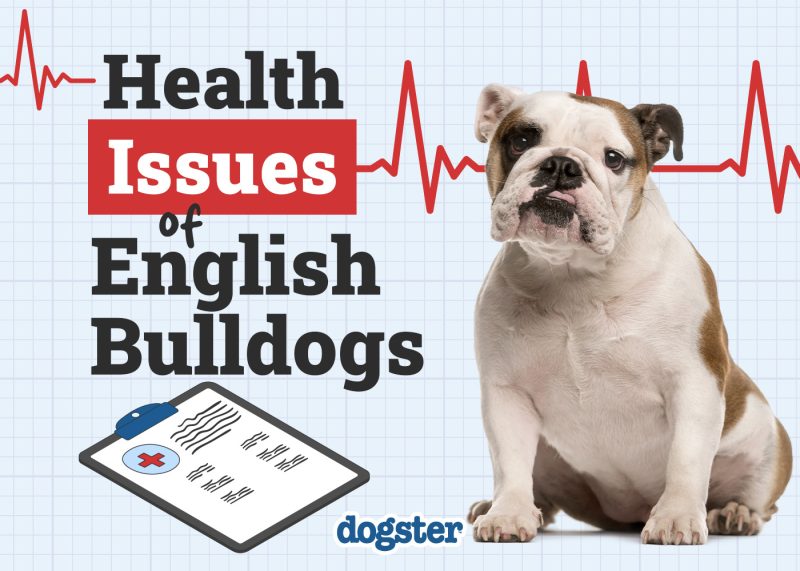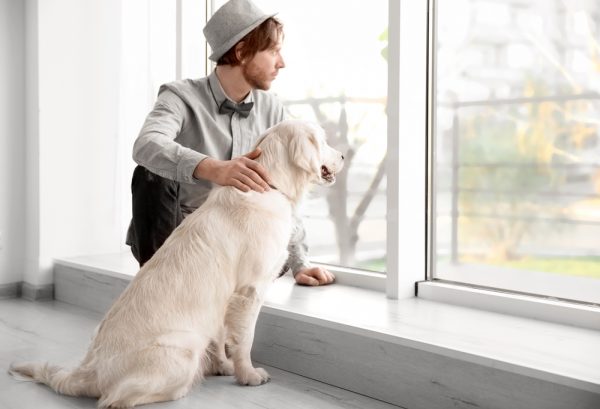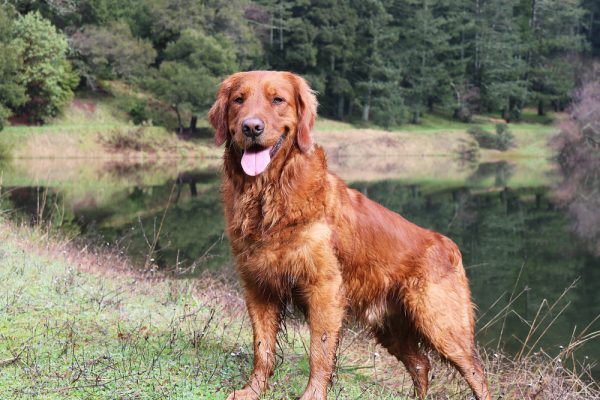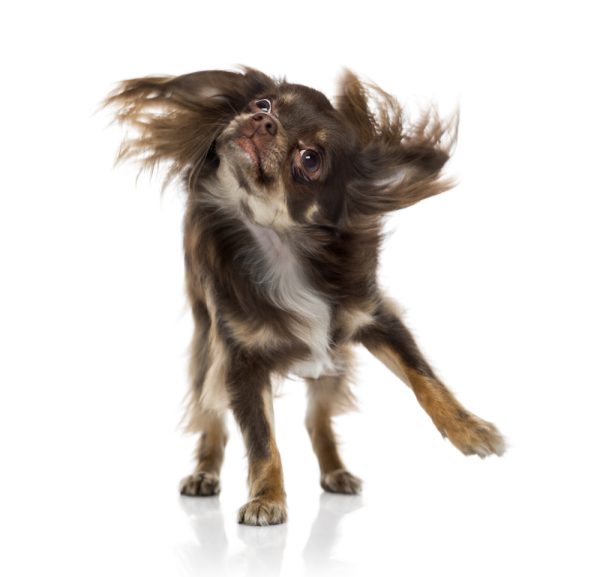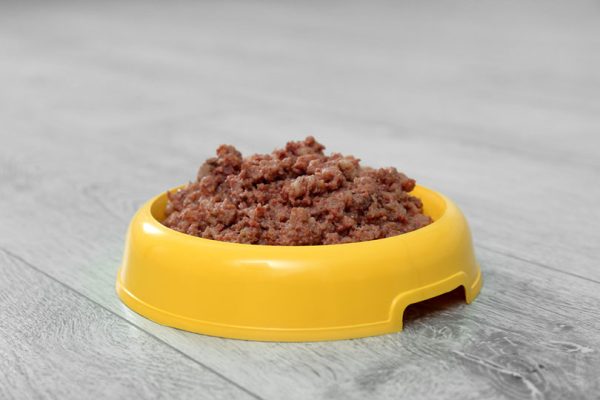In this article
If you’ve ever seen your dog’s legs kick as they sleep, you’ve likely assumed that your four-legged friend has dreams like you do. Unfortunately, that also leads us to wonder whether our canine companions can have nightmares. They can, as it appears. You can observe this yourself if your dog growls, whines, or yelps in their sleep. We don’t know exactly what’s causing these nightmares, but it’s likely common anxieties amplified from previous trauma.
If you’ve ever wondered about whether some dogs dream more than others, what to do when your dog has a nightmare, or how you can help your dog have fewer nightmares, you’re on the right page. Let’s explore those topics in more detail below so you can learn more about what makes your dog tick when they’re asleep.

How Is Sleep Different for Dogs and Humans?
The average human sleeps about 8 hours a night while the average dog can spend 12 to 14 hours of their day snoozing. Both dogs and humans go through cycles of sleep alternating between slow wave sleep (SWS) and rapid eye movement (REM).
It’s important that dogs get ample sleep so they can move through their sleep cycles smoothly. Puppies need a lot more sleep than adult dogs so their bodies and minds can develop, and interruptions can be devastating. Poor sleep quality can be linked to not just a grumpy mood but very real health problems like hypothyroidism or diabetes. Interrupting a sleeping dog can also trigger reactive instincts, like biting, so it actually turns out to be important to let sleeping dogs lie!
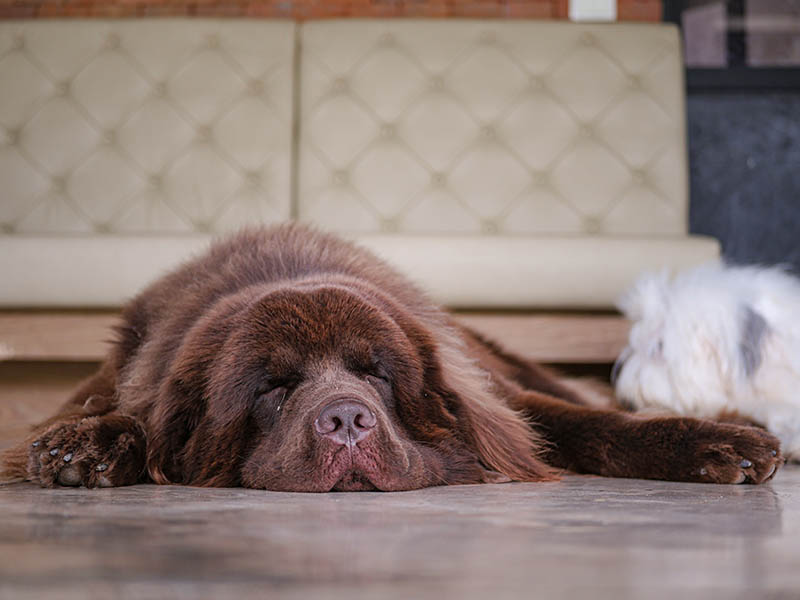
Do Some Dogs Dream More Often Than Others?
Young puppies appear to dream more often than adult dogs. This is thought to be because they’re rapidly receiving, sorting, and absorbing a staggering amount of information via their experiences every day—just like babies and children, in fact. Sleep helps the brain organize information into tidy little compartments, reinforcing training and locking in important stimuli for future reference.
Interestingly, studies have also shown that small breeds seem to have more frequent dreams than large dogs, but also shorter dreams.1 Size seems to be a big factor, but breed is thought to be relevant as well.
What Should I Do if My Dog is Having a Nightmare?
First and foremost, do not try to wake up your dog or touch them. Dogs have a startle reflex, which can be more prominent in some breeds than others. This reflex is a fight-or-flight adrenaline response that occurs when your dog suddenly wakes up and can lead to biting or other aggressive behavior.
In these cases, it’s not that your dog necessarily means to bite you, but they may associate the present time with their nightmare and try to defend themselves. It’s best that you let them work out the nightmare on their own without waking them. The best you can do is to help address the potential causes of their nightmares, especially if they happen often.
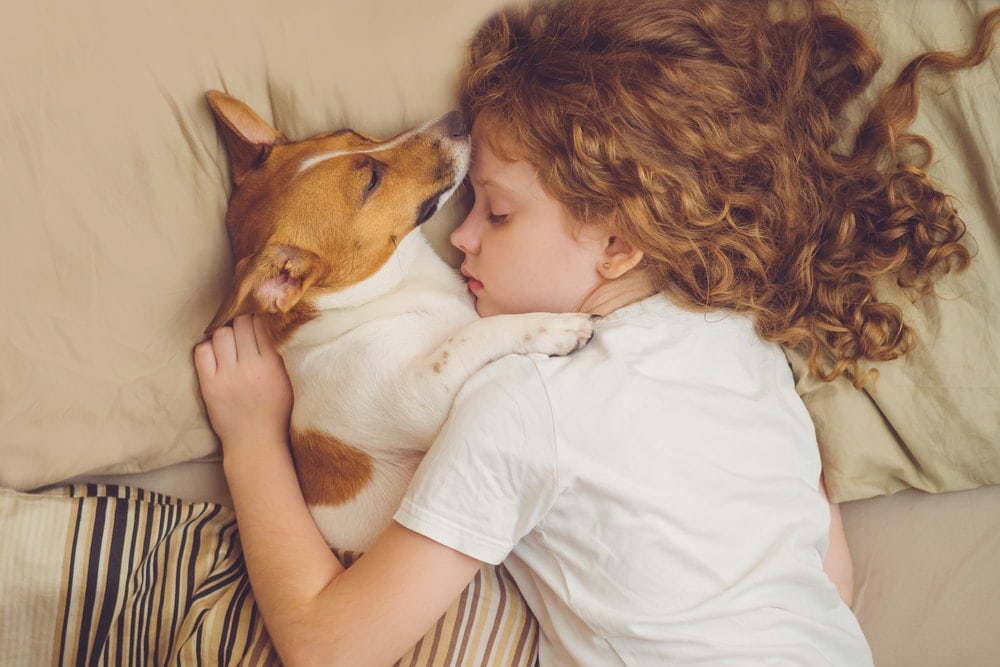
What Causes Nightmares in Dogs?
Dogs don’t have the mental capacity to conjure up monsters, ghosts, and other things that go bump in the night like humans do. Instead, their bad dreams are thought to be relived past negative or traumatic experiences. This is supported by the findings that dogs from abusive or neglectful backgrounds are often more likely to have nightmares than well-adjusted dogs from loving homes.
How to Minimize Nightmares in the Future
The best thing you can do to help minimize the number of nightmares your dog has is to help them sleep more soundly at night. In some cases, poor sleep quality points to a medical cause. Physical pain, dental disease, GI issues like irritable bowel syndrome, and chronic health problems like diabetes can all cause your dog to sleep poorly. Have your pup checked out by a vet to rule out medical causes for poor sleep.
A poorly structured sleep routine, anxiety, or a noisy sleeping environment are other more common reasons a dog may sleep poorly. Try changing up their environment to provide a more soothing, calming and regular bedtime routine so that your dog can sleep for longer at a stretch and get more rejuvenating Z’s. Let’s check out some ways to up your dog’s sleep game so you can help them snooze better tonight.
Tips for Helping Your Dog Sleep More Soundly:
- Give your dog a chew toy before bed to relieve stress built up through the day.
- Ensure your dog has a comfortable, private sleeping space to nap and sleep at night.
- Senior dogs or dogs with chronic illnesses may require special pet beds. Ask your vet for more personalized advice.
- Set up and stick to a bedtime routine so your dog can anticipate when it’s time to go to bed. Routine helps their brain settle into restorative REM sleep faster.
- Make sure your dog has plenty of exercise as appropriate for their breed—a tired dog is a happy dog!
- Give your dog free access to unlimited clean water. Hydration helps their body function properly and sleep more soundly.
- Visit a vet to get to the bottom of any health-related causes that could be negatively affecting your dog’s sleep quality.
If you’re concerned about your dog’s health we suggest you speak to a vet.
If you need to speak with a vet but can't get to one, head over to PangoVet. It's our online service where you can talk to a vet online and get the advice you need for your dog — all at an affordable price!

Conclusion
Dogs appear to have restless nights with nightmares just like we do, and you shouldn’t try to wake your dog if they’re having a bad dream. Instead, you should try to help your dog into a more comfortable sleep routine with a dedicated sleeping area and address potential medical problems that could be affecting their sleep quality.
See also:
- What Is a Fear-Free Veterinary Clinic? Vet-Reviewed Facts
- Taurine for Dogs: What Is It & Info to Know (Vet-Approved)
- Do Dogs Dream & What Do They Dream About? Vet-Verified Facts & FAQ
Featured Image Credit: Sigma_S, Shutterstock


